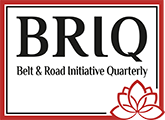EDITORIAL
The Eastern Mediterranean is the Frontline of NATO's Aggression
Russia’s special military operation in Ukraine has created a new momentum for the developing world. Over the past 30 years, developing countries have started to take action against the Atlantic aggression in reaction to the devastating consequences of the Atlantic system. Their resistance has finally put an end to the unipolar world and paved the way for a multipolar system. The agenda ahead is to joining forces and establish a fair, egalitarian fair world order. Today, a new wave of national sovereignty has been spreading from Asia to the rest of the world across Africa and Latin America. On the other hand, the USA has not abandoned its claim to be the sole master of the world and insists on imposing the continuation of a hegemonic international system. In this direction, the Atlantic Alliance seeks to prevent developing countries from enacting policies based on national sovereignty and, more importantly, from advancing South-South cooperation at the expense of to the Atlantic system.
This struggle between the Atlantic and the developing world continues on many fronts. The main fronts include the Bering Strait and the Arctic Ocean, the Taiwan Strait and the South China Sea, the Strait of Hormuz and the Arabian Sea, the Bab-el-Mandeb Strait and the Yemen Sea, the Istanbul and Dardanelles Straits, Cyprus and the Eastern Mediterranean, and the Black Sea.
The US military build-up in the Balkans, Greece, and Ukraine and the policy of expanding NATO eastward are targeting not only Russia but the remainder of developing countries. It is seen that the USA is also trying to undermine Europe's relations with Russia and China. In the meantime, it aims to prevent the success of the Belt and Road Initiative, which is paving the way for an equitable and just world through shared development, from Europe to Africa via West Asia.
Among these fronts, the Eastern Mediterranean, where Turkey serves as a tri-continental bridge, is of key importance. The rationale behind the US piling up its forces in the Eastern Mediterranean is to stop Turkey's turn towards Asia. Turkey's integration with Asia is part of its vital interests in every field, primarily national security. However, it is clear that the success of this integration will cause irreparable damage to US global hegemony. The USA has been stepping up its military threats against Turkey in order to prevent such an outcome. Today, Turkey is seen as an obstacle to NATO's strategic orientation even though it retains its NATO membership.
The Eastern Mediterranean is currently NATO's most critical front of attack. As a result, the threat that the United States poses to Turkey via Cyprus and the Aegean is actually directed toward the developing world as a whole. Therefore, repelling the Atlantic aggression in the Eastern Mediterranean will benefit the national security interests of not only Turkey but also Russia, China, and Iran, among others. Particularly, the establishment of regional unity in the lead of Turkey, Russia, China, and Iran will be a historical turning point on the road to an egalitarian and just international system.
FİKRET AKFIRAT
Editor-in-Chief
